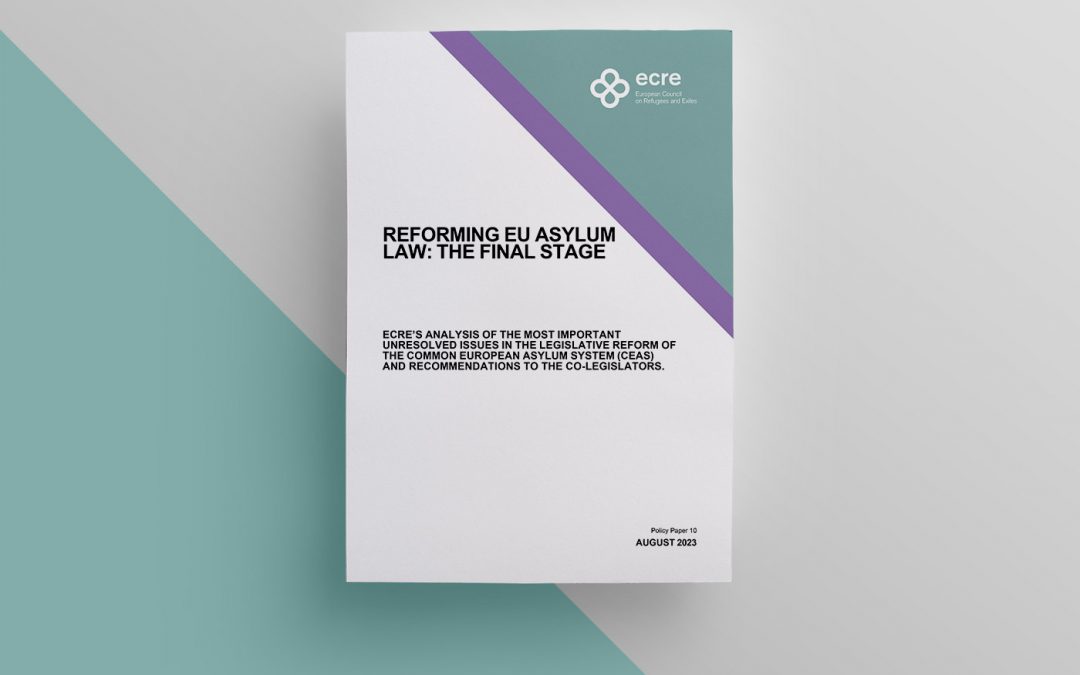ECRE has published a policy paper on the reform of EU asylum law which makes recommendation for the final stage of negotiations.
The paper analyses the positions of the two co-legislators – the Council of the EU and the European Parliament – on the legislative proposals under negotiation, including the Asylum Procedures Regulation (APR), the Regulation on Asylum and Migration Management (RAMM), the Screening Regulation, the Eurodac Regulation, the Crisis and Force Majeure Regulation and the Instrumentalisation Regulation.
The paper compares the amendments proposed by the Council and Parliament, article by article, and identifies points of disagreement. The recommendations in the paper indicate which amendments are preferable from a fundamental rights perspective.
ECRE remains critical of the reform proposals, as launched in 2016, 2020 and 2021, which largely reduce access to asylum in Europe and otherwise undermine the rights of refugees. Unfortunately, in a number of cases, the amendments – and particularly those of the Council – further reduce protection standards, as well as adding complexity, potentially rendering parts of the legislation unworkable.
Nonetheless, there are numerous points of disagreement where there is a choice between better and worse options, and on which the amendment proposed by one or other of the co-legislators would improve the provision. ECRE argues that the co-legislators should decide on amendments which support a fair and functional asylum system in Europe. In particular, ECRE urges the European Parliament to defend its positions and to ensure that, where it does concede on an article, it receives equivalent and sufficient concessions from the Council on related articles.
Important recommendations include defending the right to free legal assistance and the right to a personal interview (to a hearing); limiting the mandatory use of accelerated and border procedures; ensuring that a full assessment of human rights risks, protections risks and applicable statuses takes place in all procedures; introducing the existence of a meaningful link with a country as a basis for allocation of responsibility; ensuring that solidarity is focused on relocation; limiting the use of safe country concepts, particularly if that would entail bypassing international and EU law; and rejecting the concept of instrumentalisation and expanded use of derogations in EU law.
For further information:
- ECRE, Editorial: Migration Pact Agreement Point by Point, June 2023
- ECRE, Editorial: EU Asylum Reform: Parliament Agrees its Positions; Council Enters Wild Terrain, April 2023

